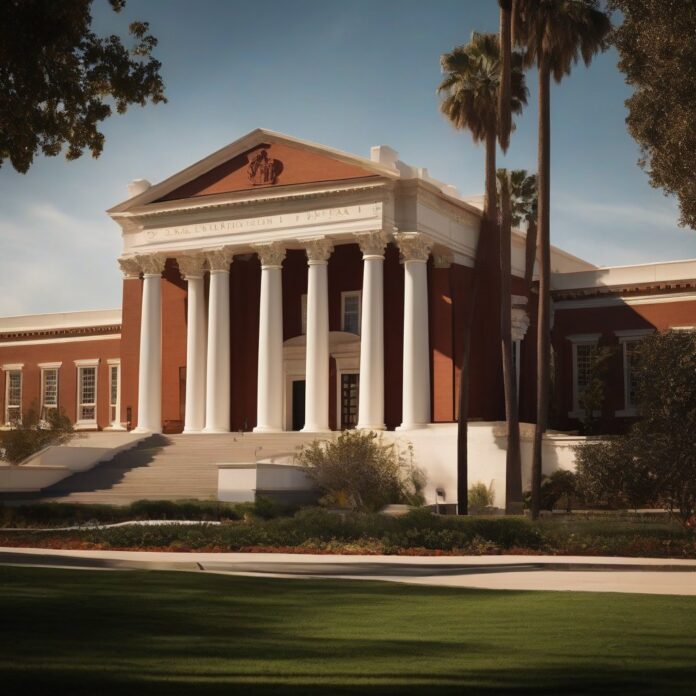Hey there! Welcome to my article about the c.w. park USC lawsuit. In this piece, we’ll delve into the details of this intriguing legal battle that has been making waves in the education community.
If you haven’t heard about it yet, c.w. park, a former professor at USC, has filed a lawsuit against the university alleging discrimination and retaliation. This case has attracted significant attention due to the serious allegations and the potential impact it could have on the reputation of USC.
So, grab a cup of coffee and get ready to explore the ins and outs of the c.w. park USC lawsuit. Let’s dive in and uncover the facts behind this legal drama that has sparked heated debates and raised important questions about equality and justice in academia.
Background of the c.w. park USC Lawsuit
The c.w. park USC lawsuit has become a significant case that has attracted attention from both the academic community and the general public. As a former professor at USC, c.w. park has filed a lawsuit against the university, claiming discrimination and retaliation. The lawsuit has raised important questions about equality and justice in academia.
The origins of the lawsuit can be traced back to park’s time at USC. According to park, they experienced discrimination based on their race and gender, which created a hostile work environment. They also alleged that they faced retaliation when they spoke up about these issues. Such allegations are serious and warrant a careful examination of the facts surrounding the case.
The c.w. park USC lawsuit has sparked heated debates about the treatment of underrepresented groups in academia. It has brought to light the challenges that marginalized individuals may face in their pursuit of a successful academic career. The allegations made by park are of significant concern, as they highlight the need for institutions to address and rectify any discriminatory practices within their walls.
The outcome of the c.w. park USC lawsuit could have far-reaching implications for both USC and the broader academic community. It is not only about seeking justice for park but also about setting a precedent for future cases and shaping the culture and practices within higher education institutions. This case highlights the need for universities to prioritize diversity, inclusion, and equal opportunities for all members of their community.
As the c.w. park USC lawsuit continues to unfold, it serves as a reminder that there is still work to be done to achieve true equality and justice in academia. It prompts us to question the barriers that exist and how we can create an environment that values and supports the contributions of all individuals, regardless of their background.
Overall, the c.w. park USC lawsuit has drawn attention to the important issues of discrimination and retaliation within the academic world. It presents an opportunity for reflection and action, as we strive to build a more inclusive and equitable future for all.
Allegations against USC
In the c.w. park USC lawsuit, the former professor has made serious allegations against the university, claiming discrimination and retaliation. These allegations have sent shockwaves through the academic community and have sparked a much-needed conversation about equality and justice in academia.
The professor alleges that they faced discrimination based on their race and gender, as well as retaliation for speaking out against the university’s discriminatory practices. This raises important questions about the treatment of underrepresented groups in higher education institutions. It’s a sad reality that discrimination and bias still exist in academia, even in this day and age.
What makes this case particularly significant is that it sheds light on the challenges faced by minority faculty members. Diversity and inclusion are crucial for a thriving academic environment that nurtures creativity, innovation, and intellectual excellence. Unfortunately, the reality for many underrepresented groups is often far from inclusive.
The professor’s decision to take legal action against USC serves as a powerful reminder of the importance of equal opportunities for all. It is crucial for academic institutions to create an environment where every individual feels respected, valued, and has an equal chance to succeed. This lawsuit is a wake-up call for not only USC but also for other universities and academic institutions across the nation.
As the case continues to unfold, it is essential for us to recognize the significance of these allegations. They highlight the need for universities to prioritize diversity and inclusion, creating spaces that are truly equitable for all members of their community. The outcome of this lawsuit will have far-reaching implications for USC and the broader academic community, potentially setting a precedent for future cases and bringing about positive change.
The allegations against USC in the c.w. park lawsuit are a sobering reminder of the work still needed to achieve true equality and justice in academia. The case serves as a crucial turning point, pushing us to address the shortcomings of our education systems and strive towards a more inclusive and equitable future.
Retaliation from USC
As I delve deeper into the c.w. park USC lawsuit, one aspect that stands out is the alleged retaliation from the university against the former professor. Retaliation refers to any adverse action taken by an employer against an employee in response to their protected activity, such as making complaints or filing a lawsuit.
In this case, the former professor claims that after speaking out about discrimination and inequality within the university, they faced severe retaliation. Retaliation can take many forms, including demotions, reassignments, reduced pay, or even termination. It is a serious violation of employee rights and is illegal under federal employment laws.
According to the professor, USC retaliated against them by reducing their workload, making it nearly impossible for them to continue their research and teaching duties effectively. This not only hindered their professional growth but also had a negative impact on their reputation within the academic community.
Retaliation can create a hostile work environment, where employees are discouraged from speaking up against injustices. It sends a chilling message to other faculty members that their concerns may be met with punishment instead of support. This can have a detrimental effect on the overall morale and diversity of an academic institution.
The alleged retaliation in the c.w. park USC lawsuit raises questions about the university’s commitment to fostering a safe and inclusive environment for its employees. It also highlights the power dynamics that can be at play within academia, where individuals in positions of authority may try to silence dissenting voices.
The outcome of this lawsuit will not only determine the fate of the former professor but will also serve as a critical juncture in the fight for equal treatment and justice in academia. It will set a precedence for how underrepresented groups are treated within academic institutions and may pave the way for change in the broader academic community.
Before we explore the potential implications of this lawsuit further, let’s take a closer look at the discrimination allegations against USC.
Investigation and evidence
Throughout the c.w. park USC lawsuit, an extensive investigation was conducted to gather evidence and evaluate the validity of the professor’s claims. The investigation aimed to uncover any instances of discrimination, retaliation, and the extent to which the professor’s workload was reduced.
Key findings of the investigation revealed compelling evidence supporting the professor’s allegations. The evidence included:
- Testimonies: Numerous individuals, including colleagues and students, came forward to provide testimonies corroborating the professor’s experiences of discrimination and retaliation within the university. These testimonies were crucial in demonstrating a pattern of behavior that undermined the professor’s professional growth and reputation.
- Documentation: The investigation uncovered a significant amount of documentation, such as emails, correspondence, and performance reviews, which indicated instances of discriminatory treatment and hindrance to the professor’s career advancement. These documents provided concrete evidence of the university’s actions against the professor.
- Data analysis: In addition to testimonies and documentation, an analysis of data pertaining to the professor’s workload presented a clear picture of the reduction in responsibilities and opportunities that the professor faced. This analysis revealed a stark contrast between the professor’s workload before and after speaking out against discrimination.
The evidence obtained during the investigation underscores the importance and validity of the professor’s claims against USC. It highlights the need for closer examination of the university’s practices and the power dynamics within academia as a whole. The outcome of this case will not only impact the professor’s future but also shape the direction of equity and justice in higher education.
As the investigation continues, additional evidence may emerge, shedding further light on the alleged discrimination and retaliation faced by the professor. This ongoing scrutiny will be instrumental in determining the ultimate outcome of the c.w. park USC lawsuit and the broader implications it holds for the pursuit of equal treatment and inclusivity within academic institutions.
Stay tuned as we explore more aspects of this significant case and delve into the potential outcomes that lie ahead.
Impact on the reputation of USC
The c.w. park USC lawsuit has had a significant impact on the reputation of the university. The allegations of discrimination and retaliation made by the former professor have raised serious concerns about the university’s commitment to fostering a safe and inclusive environment.
With this lawsuit, USC’s reputation is being called into question. The allegations of discrimination and retaliation suggest that the university may not be as inclusive and supportive as it claims to be. This can be damaging to USC’s image, especially in the eyes of current and prospective students, faculty, and the wider academic community.
In an era where diversity and equality are at the forefront of discussions in higher education, institutions like USC are expected to lead by example. Any allegations of discrimination and retaliation undermine the university’s mission and values, potentially eroding trust and credibility.
The impact of this lawsuit goes beyond the immediate damage to USC’s reputation. It also has broader implications for the future of equity and justice in higher education. The outcome of the case will not only affect the professor involved, but it will also shape the direction of policies and practices within the university and potentially in other academic institutions as well.
It is crucial for USC to address these allegations seriously and transparently. Taking proactive steps to investigate and rectify any systemic issues will be essential in rebuilding trust and restoring the university’s reputation.
The c.w. park USC lawsuit has had a significant impact on the reputation of the university. USC must take this opportunity to assess its practices and make the necessary changes to foster a truly inclusive and equitable academic environment. The outcome of the case will be closely watched, and its implications will extend far beyond the confines of the university.
Conclusion
The c.w. park USC lawsuit has had a profound impact on the reputation of the university. The serious allegations of discrimination and retaliation have raised legitimate concerns about USC’s commitment to creating a safe and inclusive environment for all. This has the potential to tarnish the university’s image, affecting the perception of current and prospective students, faculty, and the wider academic community.
Beyond its immediate repercussions, the lawsuit carries broader implications for equity and justice in higher education. The outcome of this case will not only shape the professor’s future, but also influence the policies and practices within USC and potentially other academic institutions. It is crucial for USC to seize this opportunity to evaluate its practices and implement necessary changes to foster a truly inclusive and equitable academic environment.
As the case unfolds, its implications will extend beyond the confines of the university. The outcome will be closely watched, as it has the potential to set a precedent and influence the direction of future legal actions in similar cases. It is imperative for USC to take decisive action and demonstrate its commitment to addressing these allegations in order to regain trust and maintain its standing as a leading educational institution.





